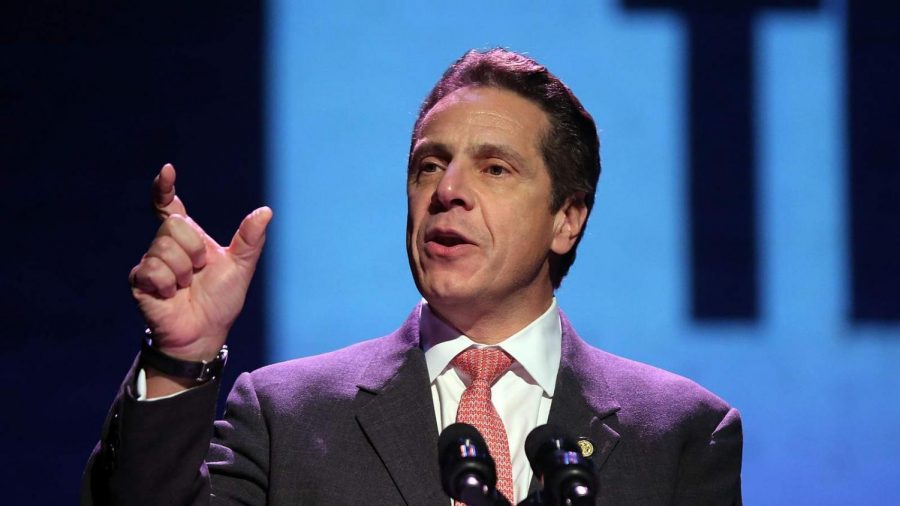New York’s Millionaire Tax Is a Step in the Right Direction
Recently, New York state Governor Andrew Cuomo announced that he would be imposing an increased tax on residents earning over $1 million in annual revenue. “The personal income tax rate would increase to 9.65% from 8.82% for individuals making over $1 million and for joint filers making more than $2 million,” according to the New York Times.
Members of the Democratic party have floated around this idea of a millionaire tax for many years despite Cuomo’s consistent objections throughout his past three terms. However, with the extreme losses in revenue in several areas, such as tourism, due to the pandemic, it seems he has reevaluated the benefits of this proposition. It is also worth indicating that Cuomo is facing two major scandals in his political career: sexual assault allegations and the handling of the disclosure of virus-related deaths in nursing homes across the state.
Gov. Cuomo also needs to prepare to run for his fourth and hypothetical final term in 2022. His approval ratings have plummeted in the few months since the height of the pandemic in 2020, when many of the sexual assault allegations were made public.
This drop comes at a bad time for Cuomo, as the race for New York State’s next governor has already begun, with elections in just over a year. Could this new tax be to pacify and appease his Democratic constituents?
Although this proposition is an attempt to return Cuomo to the good graces of those who have elected him for the past decade, he is not the first to suggest the tax. New Jersey passed a millionaires tax at the end of 2020, although New Jersey Gov. Phil Murphy attempted to pass his bill six times before the COVID-19 pandemic indirectly supported his proposal. However, New Jersey’s tax is in effect only until 2023, and New York’s will be in effect until 2027. New York has also disclosed where the funds will be allocated once they are taxed.
The tax will apply to those who did not struggle nearly as much as other citizens did throughout the ongoing pandemic. Frontline workers of minimum wage jobs did not have the luxury of staying home or temporarily relocating out of one of the nation’s COVID-19 hotspots. Instead, they worked, putting themselves and their families at risk for over a year. More than half of New York State’s frontline workers are immigrants. 19% of those workers are not United States citizens, meaning that they are not entitled to any federal aid such as the stimulus checks.
By comparison, 7.03% of New York’s population are millionaires. After looking at the number of minimum wage workers on the front line compared to the number of people that will get their annual tax raised a little more than 1%, it is difficult to argue that this will create a negative impact on the population.
This tax would expand opportunities and protect residents that have been underfunded for far too long. The New York Times explained the impacts of the tax: “If enacted, the deal would raise income and corporate taxes to generate an extra $4.3 billion a year.” By extension, middle class income would be lowered in phases to allow for the new income brackets. The new tax would primarily serve to help ease economic strain directly related to the pandemic.
The proposed budget priorities are very exciting, even simply to imagine the impacts: a record amount of $29.5 billion in relief aid to schools, $29 billion in public and private green economy investments, $2.4 billion for rent and homeowner relief, $2.1 billion for excluded workers and $1 billion for small business recovery. Furthermore, the new budget shrinks the statewide deficit and reinvests in the ongoing recovery from the pandemic.
An issue Cuomo may run into is that the millionaires, who currently fund 40% of the statewide budget, will relocate to states that do not take as much of their wealth. This is the disadvantage of not having a federal millionaire income tax. With newfound abilities to work remotely, it is certainly likely that these households will find that they do not need to rely on location for employment.
Although this outlook may be naive, it seems as though people can have practically anything they want once they reach millionaire status. This might even motivate them to adjust their goals to attain an even higher status of wealth. Moreover, millionaires can obviously afford to adjust their budget and spending allowances. Regardless of why this tax became a priority for Gov. Cuomo to instate, it will have clear positive effects and create a new era of optimism and opportunity for those who are the true heart and soul of New York.
Michela Fahy, FCRH ’23, is an English and humanitarian studies major from Cedar Grove, N.J.










































































































































































































